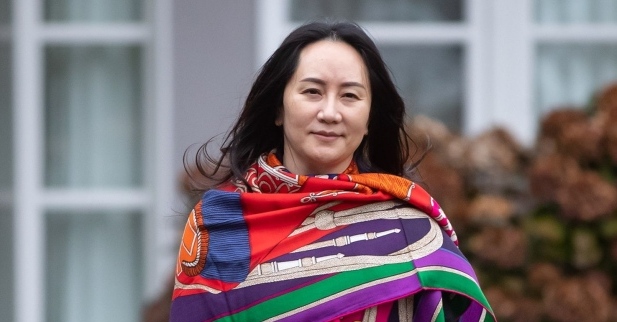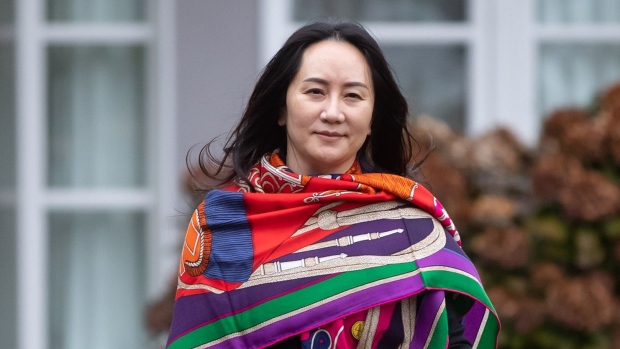Written by: Alexander H. E. Morawa, S.J.D.[1]
As the extradition case of Ms. Meng grinds through the Canadian judicial system, it may be worthwhile to contemplate certain aspects of international law that may be relevant if the matter progresses further. In particular, not only general public international law, but international human rights law governs certain aspects of extraditions. This article addresses several pertinent questions.
International Human Rights Law Governing Canada and the USA
As regards universal human rights law, Canada has ratified the UN Covenant on Civil and Political Rights (CCPR) and accepted the competence of the UN Human Rights Committee to consider communications of victims alleging violations of their rights. Canada has also ratified the UN Convention against Torture (CAT), which offers a similar complaints procedure to a specialized committee.
On the regional plane, unlike the United States, which signed the American Convention on Human Rights in 1977 but never ratified it, Canada has neither signed nor ratified it.[2] Nevertheless, as member states of the Organization of American States (OAS), both are bound by the American Declaration of Human Rights and subject to the Inter-American Commission’s review of complaints alleging violations of the Declaration which “became a source of legal obligation … to Canada when it became a Member State of the Organization of American States (OAS) and … based on Article 20 of the Statute, and the Rules of Procedure of the Inter-American Commission” (Manickavasagam Suresh v. Canada (2016), para. 49).[3] US and Canadian cases cannot, however, proceed to the Inter-American Court of Human Rights, although the Convention will be “relevant in informing an interpretation of the Declaration.” (ibid., para. 51).
Thus, a person in the position of Ms. Weng, upon conclusion of the domestic proceedings, could avail herself of recourse to either UN or regional procedures which may provide relevant remedies. It is noteworthy, however, that these procedures are, in principle, mutually exclusive and cannot be pursued in parallel, which means a petitioner must first make an informed forum choice based on multiple considerations. We shall now turn to the question of possible substantive claims that might be raised in such petitions.
Risk of Ill-treatment
The CCPR, CAT, and Declaration all prohibit the extradition of a person to a country where he or she faces a real risk to life or has “substantial grounds” for fear of being subjected to torture or ill-treatment. This concept of non-refoulement is broader than under refugee law and necessitates domestic “determination procedures that could offer … protection” (CCPR General Comment No. 36, para. 31).[4] Of course a claim must substantiate a specific, personalized risk or fear that is based on the petitioner’s particular circumstances and/or a practice that places the petitioner in a narrowly defined group of persons at risk. It appears exceptionally unlikely that Ms. Meng would be subjected to intentional or negligent inhumane treatment if extradited to the US and detained and/or prosecuted by agents under the authority of the US Department of Justice under Merrick Garland. While non-refoulement also covers a risk of degrading treatment, neither a trial nor detention would per se reach a level of severity required to amount to that. Even if we assume that the prosecution is (partly) politically motivated (see below), neither that fact nor the current climate of concerns if not fear of discrimination and even violence that exists and is well supported by facts amongst persons of Asian descent in the US would in an abstract fashion trigger a claim against refoulement.
Risk of a Trial that Violates Fundamental Rules of Procedural Fairness
The only international tribunal that has the competency to review US cases, the Inter-American Commission, has repeatedly found that US courts violate fair trial guarantees in death penalty cases (e.g. Moreno Ramos v. USA (2005)[5]) – as has the US Supreme Court. Ms. Meng does not face the death penalty, but likely a trial in federal court. There are no indications that the federal judicial process, with its three-tiered appeals procedure, would per se be deficient by international standards. The only concern that is potentially viable in this respect is that if extradited to the US, Ms. Meng would be brought outside the jurisdiction of the UN Human Rights Committee and thus could no longer avail herself of an effective remedy to that body, here both with regard to her extradition and her trial in the US itself. This argument might be reinforced by the fact that US courts regard decisions of the Inter-American Commission as non-binding since they view that body as being “limited to making non-binding recommendations for human-rights improvements” (Mitchell v. US (2020)[6]).
Risk of Prosecution that is Politically Motivated
A claim of politically motivated prosecution is generally broader than the aspect of “offensive character of the foreign laws,” but does concern a possible “unjust or oppressive” outcome of an extradition order if enforced, as Holmes, J., of the British Columbia Supreme Court explained in United States v. Meng, 2020 BCSC 785, para. 86. What runs counter not only to Canadian but international law’s fundamental values would be prosecutorial or judicial action in the requesting country that – to again use Canadian terminology – “contravenes fundamental notions of justice and thus undermines the integrity of the judicial process.” R. v. O’Connor, [1995] 4 SCR 411, para 73. One aspect of that undeniably imprecise concept can be a criminal prosecution that, upon closer review, is politically motivated to an extent that raises serious questions as to the ‘integrity’ of a formally valid extradition request. As the German Constitutional Court explained rather clearly in December 2019 (case 2 BvR 1832/19), neither the general presumption of trust between requesting and extraditing state nor any assurances given by the requesting state release a court from its duty to autonomously assess the risk of political persecution upon extradition.
One may argue that there is a difference between ‘political persecution’ and ‘politically motivated prosecution.’ Foreign courts are better suited and less likely to upend international comity when examining the risk of someone facing the former, while the political motivation of a foreign prosecutor or the government that he or she serves may be less likely to amount to a fundamental breach of principles of justice and may be much more difficult to ascertain. Nevertheless, especially if the geopolitical context of an extradition request is abundantly clear, a judge reviewing that request may find that a stricter review of the background and circumstances is required. That judge may also place an increased burden on the requesting authorities to show that the prima facie concerns of a politically motivated prosecution are not well founded. It would then be incumbent on the prosecution to prove to the satisfaction of the judge that their request is indeed unincumbered by political motivation.
The complete record of review and evidence would then be available for consideration by an international tribunal subject to the applicable admissibility criteria.
Author:
Alexander H.E Morawa
Senior Partner For Public International Law in Kingsfield Law Firm
Alexander H. E. Morawa‘s work in practice includes the representation of petitioners in various international courts and tribunals established by the United Nations and Council of Europe. He combines international and transnational legal scholarship and practice in a career that spans multiple continents. A dual citizen of the U.S.A. and Austria, he holds a faculty appointment at American University Washington College of Law, Washington, DC, and teaches internationally, e.g. at China University of Political Science and Law (CUPL), Beijing, China.
Education
S.J.D., George Washington University School of Law (Washington, D.C.)
LL.M., summa cum laude, George Washington University School of Law (Washington, D.C.)
Magister iuris, University of Salzburg (Austria)
[1] The author is a senior partner for public international law at Kingsfield Law Office and a recurring visiting professor at American University Washington College of Law.
[2] https://www.oas.org/dil/treaties_b-32_american_convention_on_human_rights_sign.htm.
[3] I-ACommHR, Report No. 8/16, Case 11.661, Merits, Manickavasagam Suresh v. Canada, dated April 13, 2016, para. 49.
[4] UN Human Rights Committee, General comment No. 36 (2018) on article 6 of the International Covenant on Civil and Political Rights, on the right to life, CCPR/C/GC/36, October 30, 2018, para. 31.
[5] I-ACommHR, Report No 1/05, Case 12.430, Merits, Roberto Moreno Ramos v. USA, January 28, 2005.
[6] Mitchell v. US, Case 20-99010, August 23, 2020 (9th Cir).
The opinions expressed in this article are those of the authors and do not reflect the opinions of InHouse Community Ltd, or it’s employees.




